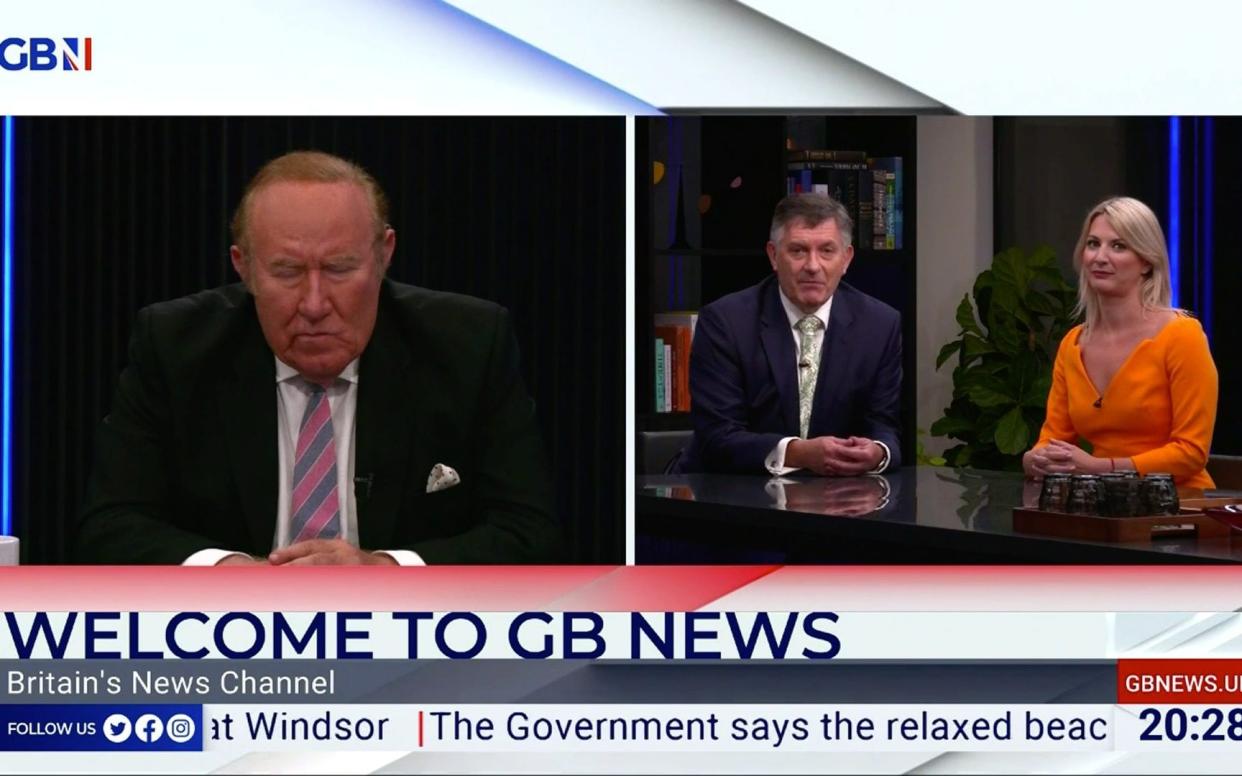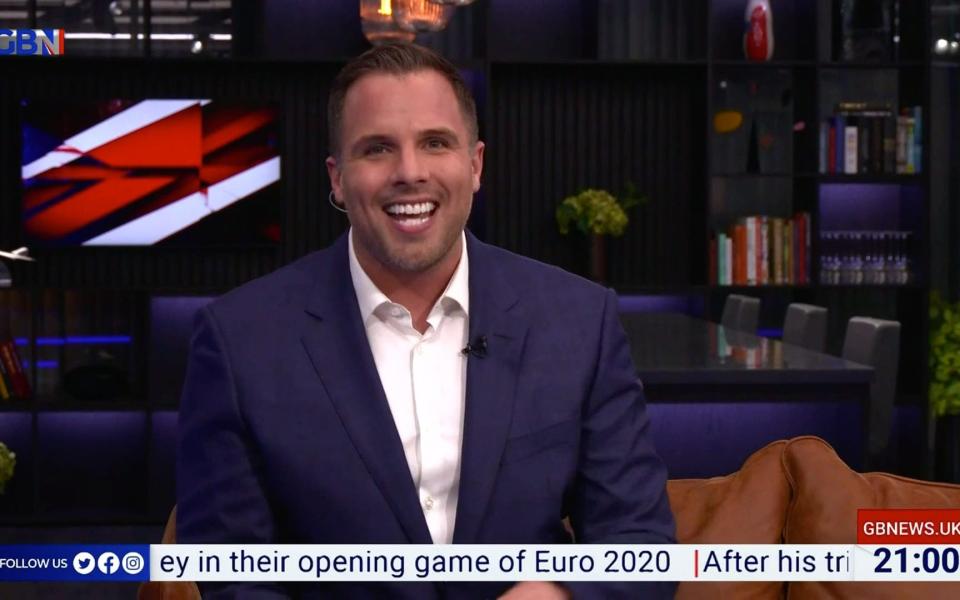The GB News ad boycott is entirely unwarranted – and it will only backfire

As the advertiser boycotts of GB News continue to pile up – Ikea, Vodafone, Octopus Energy, the Open University and Grolsch have joined Kopperberg Cider and Nivea in suspending their ads from the channel – the obvious questions are: what’s the point of advertiser boycotts and do they ever work?
These boycotts were once a weapon of the American right – General Motors consistently refused to advertise around any programming featuring Jane Fonda in the 1970s, for instance, and yet she still seems to be turning up in hit movies like 2018’s the Book Club and the successful Netflix sitcom Grace and Frankie. And activists should presumably be full of praise for the Co-Op, since its beer and pizza spot cut Nigel Farage off mid-sentence on launch night, banishing him from the air completely.
Yet pretty much every advertiser on GB News turned up there as the result of a complex commodity trade where the brands' marketing directors had little to no awareness of where the spots were likely to appear.
“Marketers at Nivea, Kopparberg and others like them are extremely unlikely to have specifically chosen a channel such as GB News,” explains Jenny Biggam, founder of the7stars, the UK’s largest independent media buying agency. “There are 200 commercial stations in the UK and Sky sells half of them. Big media buying agencies handpick big tentpole programmes like Gogglebox or Britain’s Got Talent, then there is an element of package buying – you pay for numbers of an audience rather than handpicking spots and stations.”
In other words, Comcast-controlled Sky Sales has deals with multinational companies via a handful of media buying companies who bulk buy discounted audiences on behalf of a number of clients. Thus Nivea’s owner, the FMCG giant Beiersdorf, will still receive the audience it has purchased from other channels sold by Sky, whilst new brands will turn up on the channel as available GB News audience slots are bundled into their commodity deals.
Thanks for bringing this to our attention. We want to make it clear to everyone that our ad ran on this channel without our knowledge or consent. Kopparberg is a drink for everyone and we have immediately suspended our ads from this channel pending further review of its content
— kopparberguk (@KopparbergUK) June 14, 2021
Which removes one source of speculation for those of us who’ve watched GB News consistently over the past few days and have noticed anti-climate change ads from the World Wildlife Fund, green energy, mental health support charities… Indeed, it is impossible to find a single spot that doesn’t feature diversity or liberal causes, except the Co-Op beer and pizza ad. Was adland pranking the anti-woke channel with the wokeist selection of commercials available? Apparently not.
Brands, you see, aren’t political entities. Decisions to boycott GB News are purely financial – it seems the older, male skewed GB News audience is not an attractive buy for most advertisers who use TV. “Research shows older consumers tune out advertising, one of the reasons they’re considered harder to reach,” says Al Deakin, director of adland consultancy Space Doctors, which works for a number of multinational corporations. “That could be one of the reasons why we get loads of briefs looking at millennials and Gen Z, but few - if any - for white men over 55. They’re not exactly a demographic that advertisers are knocking down the door to reach, outside of financial services.”
Thus, Ikea, Vodafone, Octopus Energy, the Open University, Grolsch, Kopperberg Cider and Nivea calculate that millennials and Gen Z consumers – known to support "activist" brands – are likely to be wooed by their position taking. And here’s where GN News actually has an opportunity, given its survival is so unlikely in an era where news channels either lose money or rely on state support. In many respects, ad boycotts are throwing GB News a much needed lifeline.
The channel’s first few days on air have been relentlessly, heroically inept – showcasing the best of British broadcasting in much the same way Eddie the Eagle showcased the best of British ski jumping. From day one it has consistent struggled with sound, lighting, misspelled chyrons, misbehaving graphics, lost connections to remote guests, and confused presenters, earning it the online nickname GBeebies.
In the meantime, the viewers have not been hitting targets. Although its opening night turned in a healthy average of 164,000 viewers between 7pm and 11pm, things tailed off fairly quickly. According to BARB figures for the first full day on air, GB News averaged 74,000 viewers, just behind Sky News’ 78,000 and some way behind most UK newspapers – placing it between the Scottish Daily Record’s 86,253 copies and the Sunday Post’s 65,563 copies.
A pre-launch report by media analyst firm Enders Analysis described the channel’s viewing figure target of 111,000 viewers as “clearly ambitious” noting that “those whose newspaper choices are aligned with GB News' political stance engage more with BBC Television news than the national average.”
And if some research is to be believed, GB News faces an uphill struggle with a British public who have scant interest in the culture wars – the tackling of which has been GB News' main marketing pitch. According to a May 2021 survey by Ipsos and the Policy Institute, 61 per cent have heard little or nothing about both cancel culture and identity politics and 50 per cent say they have heard little about "woke", including 32 per cent who claim to have never heard the term.

(Indeed, watching Andrew Neil on Monday with my 17 year old daughter she turned to me as his Woke Watch slot came on and said; “Why are old people trying to bring back the word woke? It’s so 2016. My history teacher said it this week.”)
In the US, advertiser boycotts of Fox News have been in response to shocking events - in August 2009, Walmart, Verizon, Proctor & Gamble and dozens more boycotted The Glenn Beck Show after Beck made racial comments about President Obama. The loss in advertising cost Fox News more than $600,000 weekly and Beck’s show was cancelled in August 2011.
GB News' first week, conversely, has offered little that’s even remotely offensive. Dan Wootton’s show has included guest Lady Colin Campbell claiming that Jeffrey Epstein "wasn't a bad man", but otherwise he’s failed to goad his contributors into anything controversial – even Roger Daltrey, encouraged to discuss the banning of the Union Flag, said wearily "let’s not get into politics". The group behind the boycott is called Stop Funding Hate, yet there has been little hate on the channel so far.
I think the truth about GB News is the left hate it because the media told them to.
Nobody has been able to pick out anything tangible to say "Look at this, this is awful. A clear violation of the broadcasting code".
It's just people making claims with no evidence.— Retro (@RetroActiveGM) June 16, 2021
Enders' research paper suggested the channels best chance of staying on air is to galvanise its viewers. GB News is counting on a membership scheme where “134k members generating c.£13 million annually by year five—would conveniently top up projected advertising revenues beyond break-even. This would require an unrealistically high average price point of £10 per month (including VAT), before the impact of free trials and churn are even considered,” the report mused.
“Experiences and subscription content require additional perks to convince people to pay, a challenge for GB News when it is already committing so much resource to its broadcast output. As such, a model that is based on fan support for its journalistic mission seems more likely.”
And just when GB News was looking for something to galvanise its viewers into such fan support, along come a bunch of woke advertisers pulling their spots. A brief glance at Twitter shows GB Newsniks offering to follow each other and form a GB News army. Once the channel converts that enthusiasm to cash, it’s home dry.

